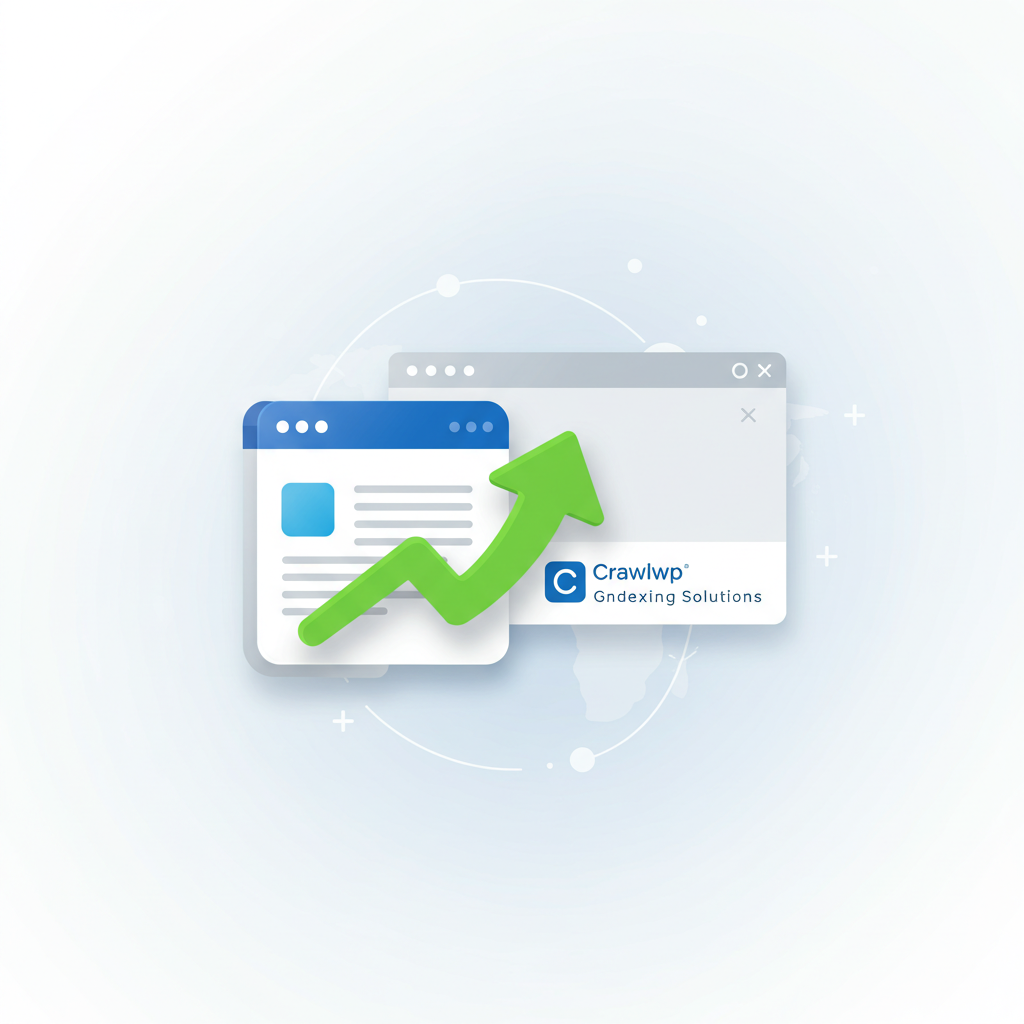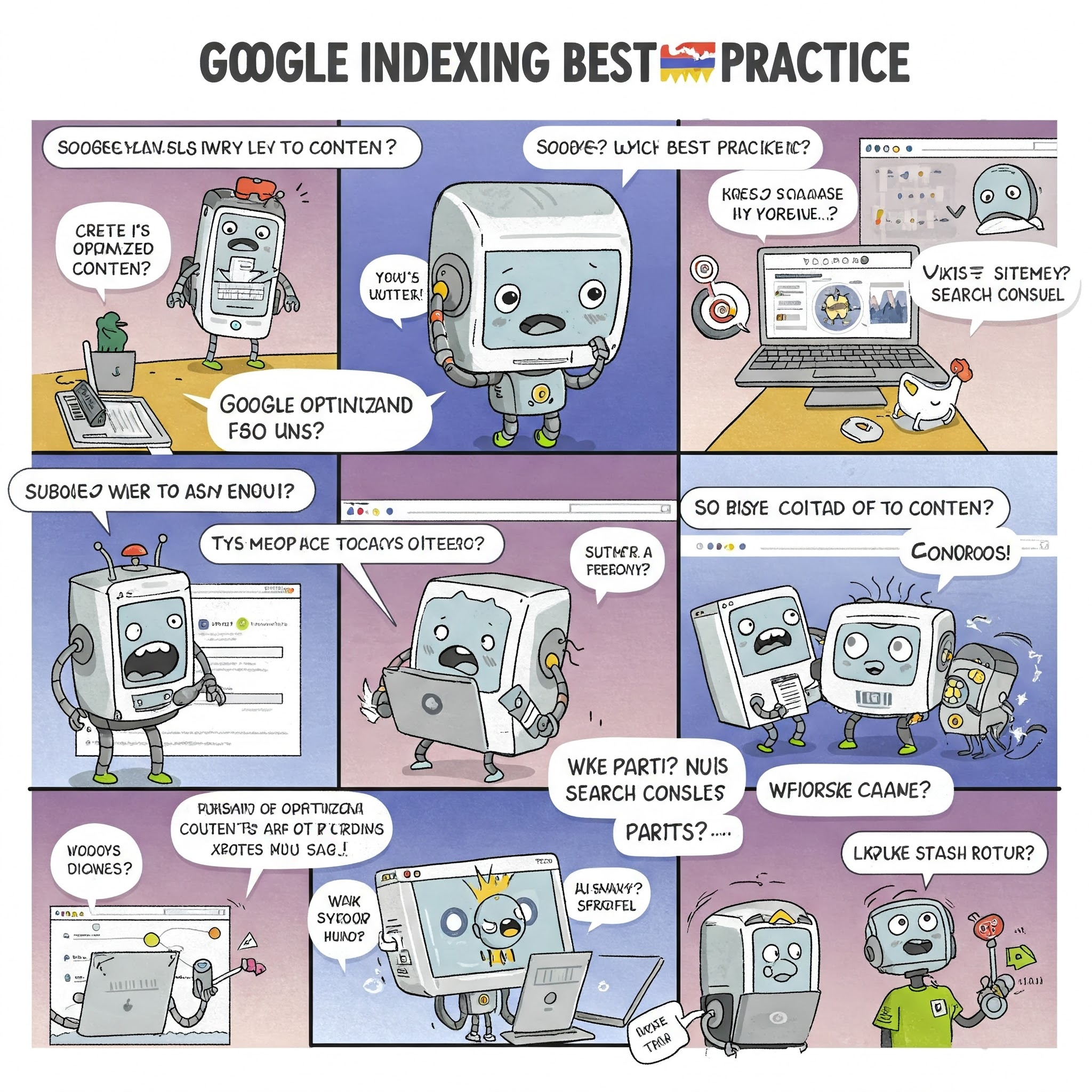Google Indexing Best Practices, which are crucial for ensuring your website content is discoverable by Google Search and can appear in relevant search results. Understanding and implementing these practices is essential for website visibility, organic traffic, and overall online success.
The Importance of Google Indexing
Google indexing is the process by which Google’s search engine bots crawl and analyze the content of your website, adding it to their vast index. This index is like a massive library of web pages. Without being indexed, your website pages won’t appear in Google’s search results, making it impossible for potential visitors to find you organically. Therefore, ensuring your site is properly indexed is the foundational step for any successful online presence.
Boosting Your Chances of Indexing
Several factors contribute to how effectively Google indexes your website. Focusing on these areas can significantly improve your chances of getting your content discovered and ranked:
- Website Crawlability: Googlebot needs to be able to access and navigate your website. Ensure your site has a clear and logical structure, with internal links connecting different pages. A well-organized site makes it easier for Googlebot to crawl all your important content.
- XML Sitemap: Submitting an XML sitemap to Google Search Console is like providing Google with a roadmap of all the important pages on your website. This helps Google discover and index your content more efficiently, especially new or recently updated pages.
- robots.txt: This file tells search engine crawlers which pages or sections of your website they should not access. Use it carefully to avoid accidentally blocking important content from being indexed.
- High-Quality and Unique Content: Google prioritizes indexing valuable and original content. Ensure your website offers informative, engaging, and unique content that provides value to users. Avoid duplicate or thin content, as this can negatively impact your indexing and ranking.
- Page Speed and Mobile-Friendliness: Google considers user experience a crucial ranking factor. Slow-loading websites and those not optimized for mobile devices can face indexing challenges and lower rankings. Ensure your site is fast, responsive, and provides a seamless experience across all devices.
- Internal and External Linking: Internal links help Google understand the relationship between different pages on your site and distribute link equity. High-quality external links to authoritative websites can also enhance your site’s credibility.
- HTTPS Security: Having a secure website with HTTPS encryption is a ranking signal for Google. Ensure your site uses HTTPS to build trust with users and improve your chances of indexing and ranking well.
Guiding Google with Structured Data
Implementing structured data markup (Schema.org) on your website helps Google understand the context and meaning of your content. This can lead to rich snippets in search results, making your listings more visually appealing and informative, 1 potentially increasing click-through rates. 2
- digfotech.com
- seofactshub.com
Monitoring Your Indexing Status
Google Search Console is an invaluable tool for monitoring your website’s indexing status. It allows you to:
- Submit and monitor your XML sitemap.
- Check your robots.txt file for errors.
- See which of your pages have been indexed.
- Identify and fix crawl errors.
- Request indexing for new or updated pages.
- Receive alerts about indexing issues.
Regularly using Google Search Console is crucial for identifying and addressing any problems that might be hindering your website’s indexing.
Common Google Indexing Mistakes to Avoid
Just like with database indexing, there are common mistakes to avoid when it comes to Google indexing:
- Blocking Important Pages in robots.txt: Accidentally disallowing Googlebot from crawling key content will prevent it from being indexed.
- Noindex Meta Tag: Using the <meta name=”robots” content=”noindex”> tag on important pages will instruct Google not to index them. Ensure this tag is only used intentionally for pages you don’t want to appear in search results.
- Orphaned Pages: Pages on your website that are not linked to from any other internal pages are difficult for Googlebot to discover and index. Ensure all important pages are properly linked within your site structure.
- Duplicate Content: Having the same or very similar content on multiple pages can confuse Google and dilute your ranking potential. Focus on creating unique and valuable content for each page.
- Poor Site Structure: A confusing or overly complex website structure can make it difficult for Googlebot to crawl and index all your content effectively.
Tools for Google Indexing Optimization
Several tools can assist you in optimizing your website for Google indexing:
- Google Search Console: As mentioned earlier, this is Google’s primary tool for monitoring and managing your site’s presence in search results.
- XML Sitemap Generators: These tools help you create an XML sitemap for your website.
- robots.txt Testers: These tools allow you to test your robots.txt file to ensure it’s configured correctly.
- Page Speed Testers (e.g., Google PageSpeed Insights): These tools analyze your website’s loading speed and provide recommendations for improvement.
- Mobile-Friendly Test (Google): This tool checks how easily a visitor can use your page on a mobile device.
- Schema Markup Validators (Google): These tools help you validate your structured data markup.
- SEO Audit Tools (e.g., SEMrush, Ahrefs): These comprehensive tools often include site audit features that can identify crawlability and indexability issues.

To further streamline your Google indexing efforts, consider exploring services like Crawlwp Review – Fast Indexing Solutions. While not directly a tool for optimization within your own website, these services specialize in accelerating the process of getting your content indexed quickly by Google. By leveraging their expertise and infrastructure, you can potentially see your new or updated pages appear in search results faster than relying solely on Google’s standard crawling schedule. Integrating such solutions into your overall strategy can be particularly beneficial for time-sensitive content or websites that frequently publish new information. Always research and choose reputable services to ensure they align with Google’s webmaster guidelines.
Conclusion
Optimizing for Google indexing is an ongoing process that requires attention to technical SEO, content quality, and user experience. By understanding and implementing these best practices, regularly monitoring your site’s status in Google Search Console, and avoiding common mistakes, you can significantly improve your website’s visibility in Google Search and drive more organic traffic to your site. Remember that consistent effort and a focus on providing value to users are key to long-term success in Google’s search results.




